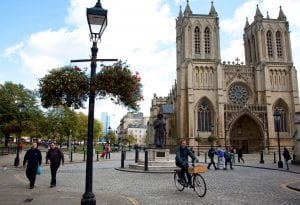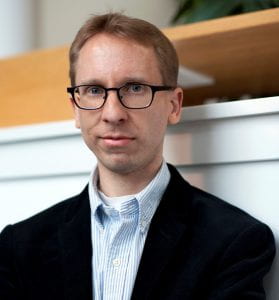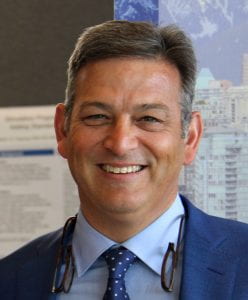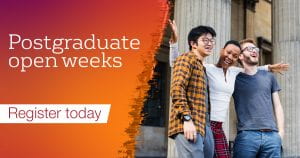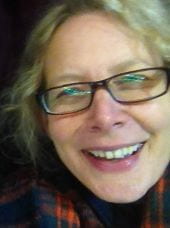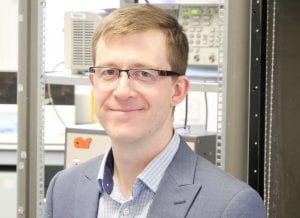Dr Emeliana Palk manages the NERC GW4+ Doctoral Training Partnership based at the University of Bristol, and she popped in (virtually) to answer some questions.
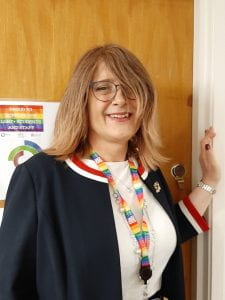
Tell us about your journey into academia…
Well, it’s been a ‘Long and Winding Road’ to borrow from the Beatles song! As a child, I loved everything to do with nature from plants to rocks and a bit of chemistry in between. Nevertheless, I didn’t do a degree after leaving school and instead took a job in an accountant’s office. I loved working with numbers to balance the books and loved the detective work of figuring out the missing pieces when putting together a set of accounts. Eventually I qualified as a Chartered Accountant. But this career wasn’t science, my first love, and I missed that.
Fast forward to when started a family: I left my career in accountancy to bring up my two sons and, as time went by, I thought ‘what if I could make up for opportunities that I missed and study for a degree?’ I’m so thankful to Birkbeck College for giving me the chance to take a degree in geology, part-time and in the evenings to suit my caring responsibilities, and I never looked back. After my degree, Imperial College gave me the amazing opportunity to research for a PhD in isotope geochemistry. Here’s the thing: I was able to research for my PhD part-time and the work was entirely based in the lab, which was perfect for fitting the work around bringing up my sons.
Well, I got my PhD four years ago and, after doing some postdoc research, I landed my dream job of managing a Doctoral Training Partnership with around 200 PhD researchers working the entire breadth of the Earth, Environmental and Life Sciences. I love the way I can be involved in a vast array of different scientific fields as I was always interested in so many different things and it suits me better than being immersed in a particular research area. That’s just my preference and you may want something different.
Oh, remember that finance and accountancy experience I got in the dim and distant past? It’s so handy to have that expertise when dealing with all sorts of things in my job, from the intricacies of PhD studentship funding to arranging internships for my PhD researchers!
What’s the most difficult thing you encountered during your PhD?
Could this mean messing up samples by pipetting the wrong solution into them or breaking stuff in the lab? Well, I’ve done all that, and more but, no, these were not the most difficult things to overcome. It’s probably the feeling of inadequacy that you’re doing this complex PhD research and all those around you seem cleverer and more capable, especially when you’re alone with your thoughts in the lab or buried in data. This is very common amongst PhD researchers but was a very strong feeling in me because I did my PhD much later in life than most. We recognise this in our doctoral training programme and provide you with strategies to help you deal with these feelings.
What tips do you have for PhD applicants?
Don’t leave it to January to do your CV and personal statement! Choose your project carefully because it will literally be your life for four years. You should get in touch with the lead supervisor on the projects you’re interested in and ask them questions about the research to make absolutely sure it’s right for you. Don’t be shy asking those questions, either: supervisors love to engage with applicants who show a keen interest in their projects! It’s better to find out now what the research involves rather than later after you’ve started.
It’s also worth spending some time working on your personal statement so that you can put across some of that passion you have for science. When I start writing a draft of something important like that, I give myself enough time to keep coming back to it when thoughts and ideas pop into my head. Eventually it takes shape and portrays the passion I have for whatever it is I’m writing about. So, start now!
What kind of things can applicants ask you?
As a Doctoral Training Partnership, we’re a bit unusual in that we accept applications for PhDs at four universities (Bath, Bristol, Cardiff and Exeter) and several environmental research organisations, so our webinar will reflect this, too. So whichever university you’re applying to, you’re most welcome to attend my webinar. When you’re accepted for one of our PhDs, you will become a member of our doctoral research community and be entitled to take part in an extensive training and career development programme.
So, ask me about our cohort events, our conferences and symposia, and our paid internships! Ask me how we support our carers and ask me what support you get if you fall ill. Ask me about the application process. In fact, ask me anything on your mind – you’re not expected to know everything and applying for and doing a PhD is a huge commitment, so feel free to ask questions to your heart’s content!
How can PhD applicants make the most of open week?
Come to my webinar! OK, there are others to go to as well. Apart from the subjects you’re interested in, sign up for things like ‘How to make the best STEM application for a postgraduate research degree’ and hear what actual PhD Researchers have to say by signing up for ‘Perspectives from current science postgraduate researchers – a student panel’.
Oh, by the way, did I mention I’m doing a webinar? Don’t forget to sign up for my ‘NERC GW4+ Doctoral Training Partnership‘ webinar. It’s on Wednesday 25 November at 4pm GMT for one hour and you’ll have plenty of time to ask your questions.


